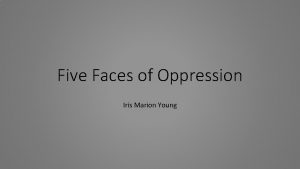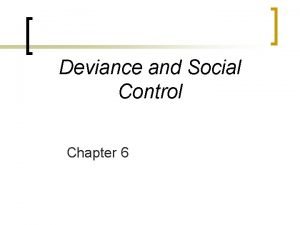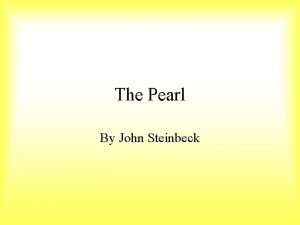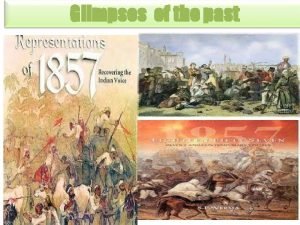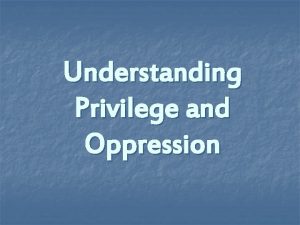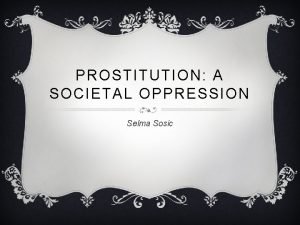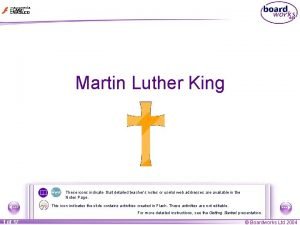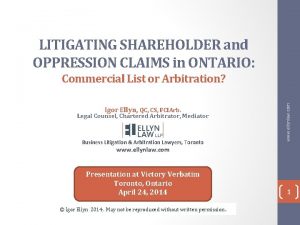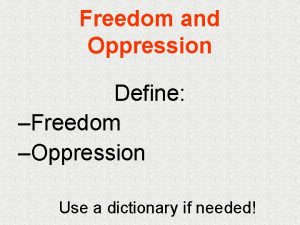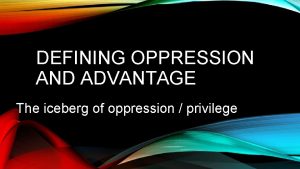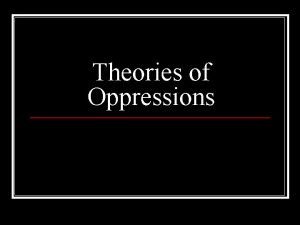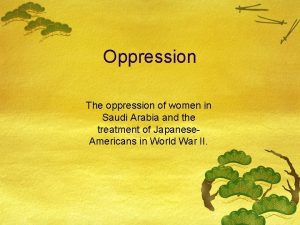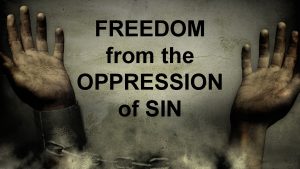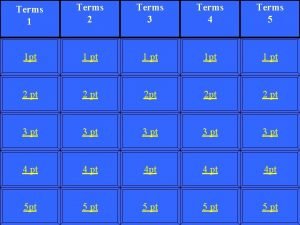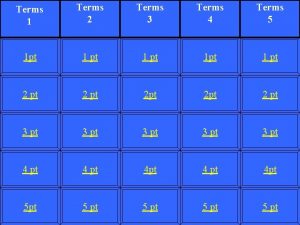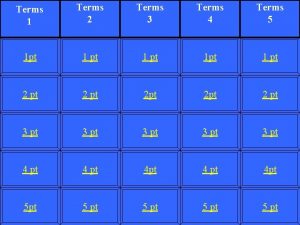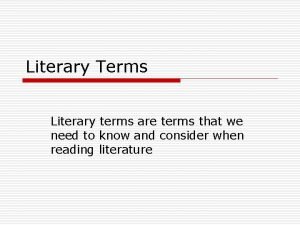REVIEW In terms of responses to oppression and














- Slides: 14

REVIEW • In terms of responses to oppression and genocide, So far we looked at: • Resistance – categorized as passive or active • Revolution – e. g. Haitian revolution (pg 118 box 4. 8 text) • Formation of peasant groups

PAST ESSAY QUESTIONS • 2019 1. The colonizers employed different systems of production in the Caribbean as a means of increasing production and wealth. Choose any TWO of the following systems of production and describe TWO ways in which each system contributed to the oppression of the peoples of the Caribbean: • Encomienda • Slavery • Indentureship 20 marks • 2016 Explain FOUR ways in which the historical experiences and culinary practices of Caribbean people have shaped/influenced food choices today. 20 marks • 2015 “Internal self-government was the most important movement towards independence in the Caribbean. ” Discuss the extent to which you agree with this statement. 30 marks

MOVEMENTS TOWARD INDEPENDENCE

MOVEMENTS TOWARD INDEPENDENCE: • • • (i) political enfranchisement; (ii) adult suffrage; (iii) internal self-government; (iv) economic enfranchisement; and, (v) entrepreneurial activities, including shopkeeping and savings societies.

BEFORE WE GO FURTHER – SOME DETAILS ON RESPONSES TO OPPRESSION: • Resistance – categorized as passive or active • also included formation of the peasantry as resistance to oppression on plantation after slavery & indentureship • Cultural resistance • The reparations movement – which a response taking place even now according to Mohammed (pg 118, box 4. 9)

RESPONSES TO OPPRESSION INCLUDED: • The peasantry – the class of people who own and control small plots of land from which they gain a livelihood. They were a new class of people at that time, before that, only the whites were land owners. • Their major activities included: farming, fishing, livestock production and charcoal production. • They grew cash crops such as cocoa, nutmeg, banana. • This led to economic diversification (a change from mono crop). This diversification allowed the ex-slaves to make a vital contribution to the growth and development of Caribbean society in the post emancipation era. Thus the peasantry was instrumental to the growth of Caribbean society. • Peasant proprietors - the peasants who owned land; those who didn’t own land were seen as the ’underclass’, thus land ownership was a means of social mobility in the first 2 to 3 decades after emancipation.

TERMS TO NOTE • Suffrage – the right to vote • Adult Suffrage (sometimes also called Universal Adult suffrage) - the right to vote on reaching the appropriate age (18 or 21 in some places) • Internal self government - when a country gains some political freedom while still being attached to a colonial country.

A SUMMARY OF THE MOVEMENT TOWARD INDEPENDENCE

STRUCTURES OF GOVERNMENT • Crown colony Crown Governor Appointed House

STRUCTURES OF GOVERNMENT • Constitutional Monarchy Crown Governor General Prime Minister Appointed House Elected house

STRUCTURES OF GOVERNMENT • Republicanism President Prime Minister

SYSTEMS OF GOVERNMENT

SYSTEMS OF GOVERNMENT

PAST ESSAY QUESTIONS ON SOCIETY AND CULTURE • 2018 Describe FOUR popular ways of understanding society, outlining ONE limitation of EACH for understanding Caribbean societies. 20 marks • 2011 1. Using THREE examples from the Caribbean, explain the relationship between culture and society. 20 marks
 Young five faces of oppression
Young five faces of oppression The refers to opportunities for crimes that are woven
The refers to opportunities for crimes that are woven Themes in the pearl by john steinbeck
Themes in the pearl by john steinbeck Dissatisfaction 1835 to 1856
Dissatisfaction 1835 to 1856 Cycle of oppression diagram
Cycle of oppression diagram Oppression thesis statement
Oppression thesis statement Black oppression
Black oppression Shareholder oppression ontario
Shareholder oppression ontario Recours en oppression
Recours en oppression Polynomial classification
Polynomial classification How to combine like terms
How to combine like terms Grandfather clause apush
Grandfather clause apush Welding positions 6g
Welding positions 6g Gummy bear lab anatomy
Gummy bear lab anatomy Allegory definition literature
Allegory definition literature
